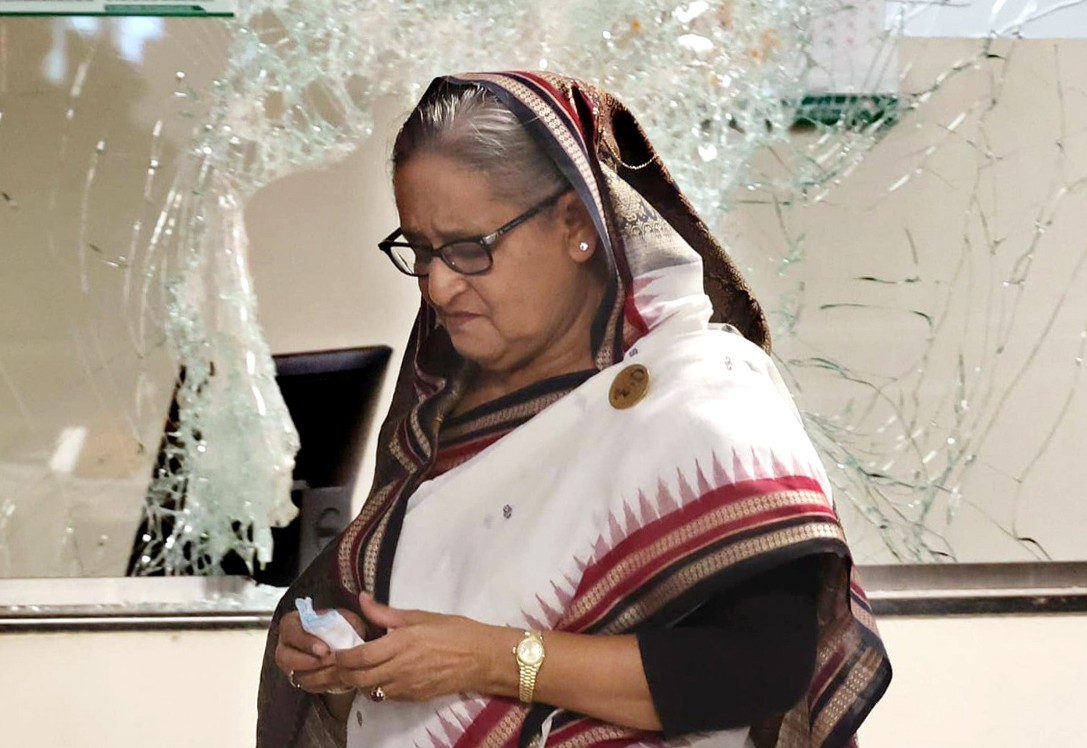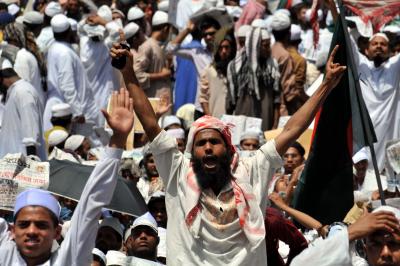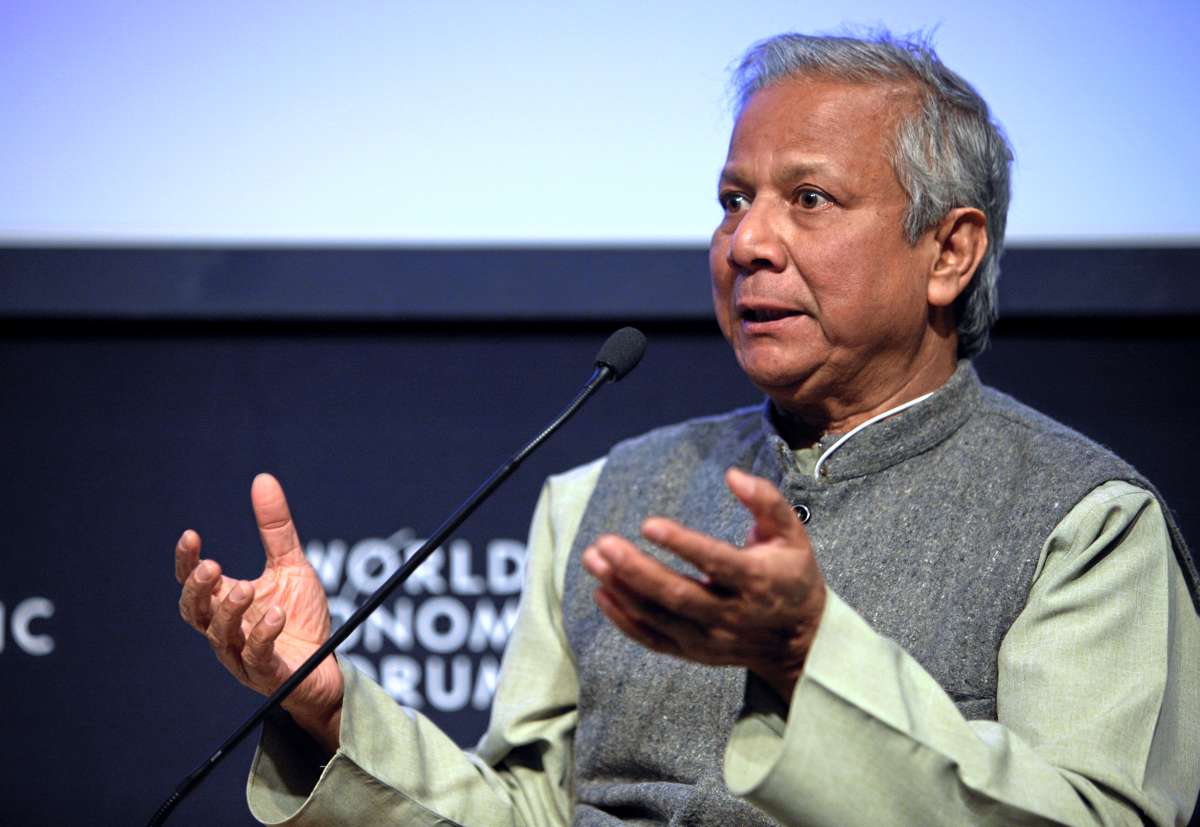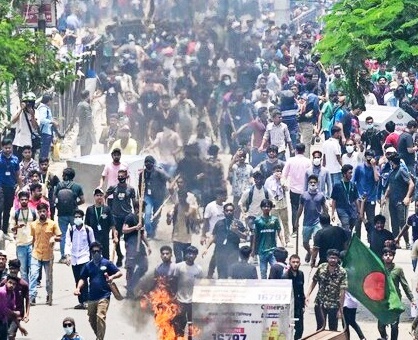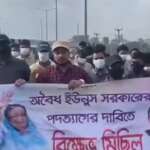Sheikh Hasina seemed to be aware of a larger foreign conspiracy to topple her government. During her visit to a hospital on July 27 to meet people injured in the violent quota reform protests, she claimed that her country was facing a conspiracy targeting its political stability and economic progress … writes Khalid Rahman
The British government has called for a United Nations-led investigation into the violent incidents of the past few weeks in Bangladesh, which led to the ousted Prime Minister Sheikh Hasina fleeing to India before reportedly seeking asylum in the UK. Foreign Secretary David Lammy issued a statement condemning the unprecedented levels of violence and tragic loss of life over the last two weeks in Bangladesh. He stated that the UK wanted to see action towards a democratic future for the country.
Is there any international conspiracy for regime change in Bangladesh?
Political analysts are dissecting geopolitical interests, foreign policy agendas, and internal dynamics to find out some clues.
On August 4, Sheikh Hasina, the long-time prime minister of Bangladesh, resigned and fled the nation. Inputs indicate that foreign elements are behind the dramatic turn of events. While the main opposition the Bangladesh Nationalist Party (BNP) in collaboration with its Islamic hardliner groups like the banned Jamaat-e-Islami (JeI) fanned the fire of the protests and ensured that the movement turn violent, the entire scenario for regime change was being planned by Washington for some time now.
The administration of US President Joe Biden had decided to make Bangladesh the focus of its democracy promotion efforts. The Biden administration has spared no opportunity to criticise Hasina’s government in the past few years, threatening visa controls, sanctions. Even as Bangladesh’s economic achievements under Hasina were being internationally lauded, the Biden administration excluded Bangladesh from the Summits for Democracy convened in 2021 and 2023 which ironically Pakistan was invited both times, though it did not attend.
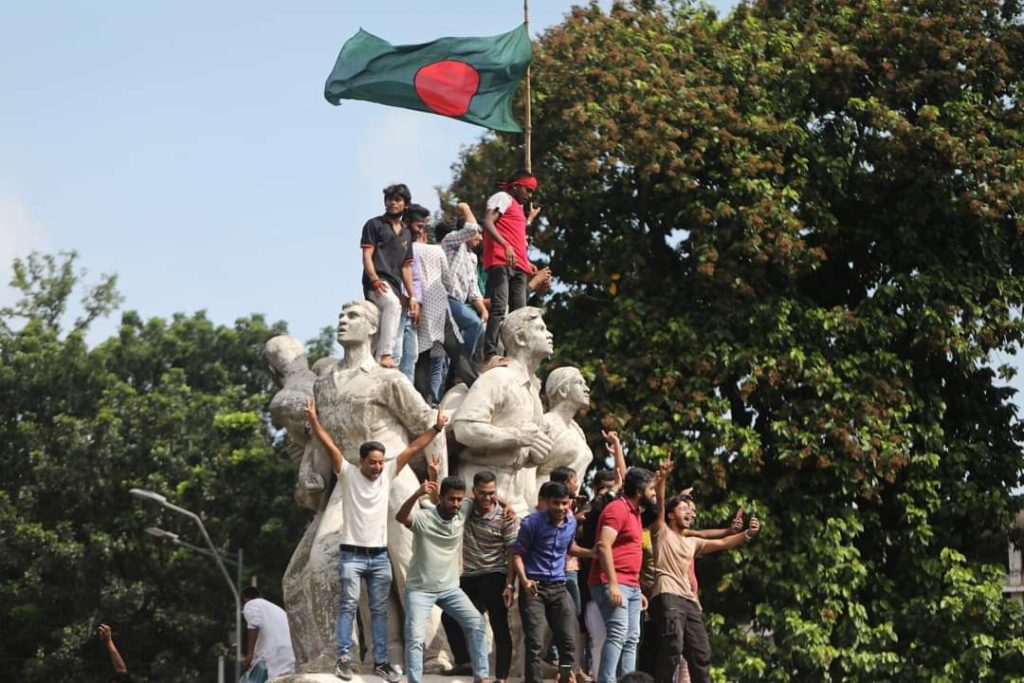
Bangladesh Nationalist Party (BNP)-Jamaat-e-Islami (JeI) intrigue Fanned the Fire:
There appears to be intelligence to the effect that Pakistan’s ISI was using students to pressure Hasina into quitting. The aim was to establish an anti-India government, and ISI sleeper cells were also being activated against Hasina. It was clear from the start that the large-scale protests that broke out in Bangladesh in July were being fomented and egged on by a Bangladesh Nationalist Party (BNP)-Jamaat-e-Islami (JeI) intrigue. In fact during the initial phase of the protests Dhaka Police had hinted that the Islami Chhatra Shibir, the student wing of the outlawed JeI backed by Pakistan’s ISI, has played a major role instigating violence and transforming student protests into a political movement in Bangladesh that has impacted the routine of millions.
The BNP head office is where the conspiracies and violent politics centering the quota reform movement were being instigated and abetted.
Indian intelligence agencies have been monitoring the Islami Chhatra Shibir (ICS), the student arm of the Jamaat-e-Islami for a while now. “The ultimate objective of Jamaat or ICS is to establish a Taliban-type govt in Bangladesh, and the ISI has been assuring them of their support in achieving this goal. Their proximity became flagrant in the wake of the strengthening ties between the Indian and Bangladeshi governments,” an intelligence officer, speaking on condition of anonymity, told News18.
Sheikh Hasina seemed to be aware of a larger foreign conspiracy to topple her government. During her visit to a hospital on July 27 to meet people injured in the violent quota reform protests, she claimed that her country was facing a conspiracy targeting its political stability and economic progress.
“It might be their conspiracy to make us again a nation of beggars by crippling the country’s economy completely,” she said. She asked that if economic destruction was not the motive, why did the protesters target essential infrastructure such as metro stations, hospitals, and expressways.
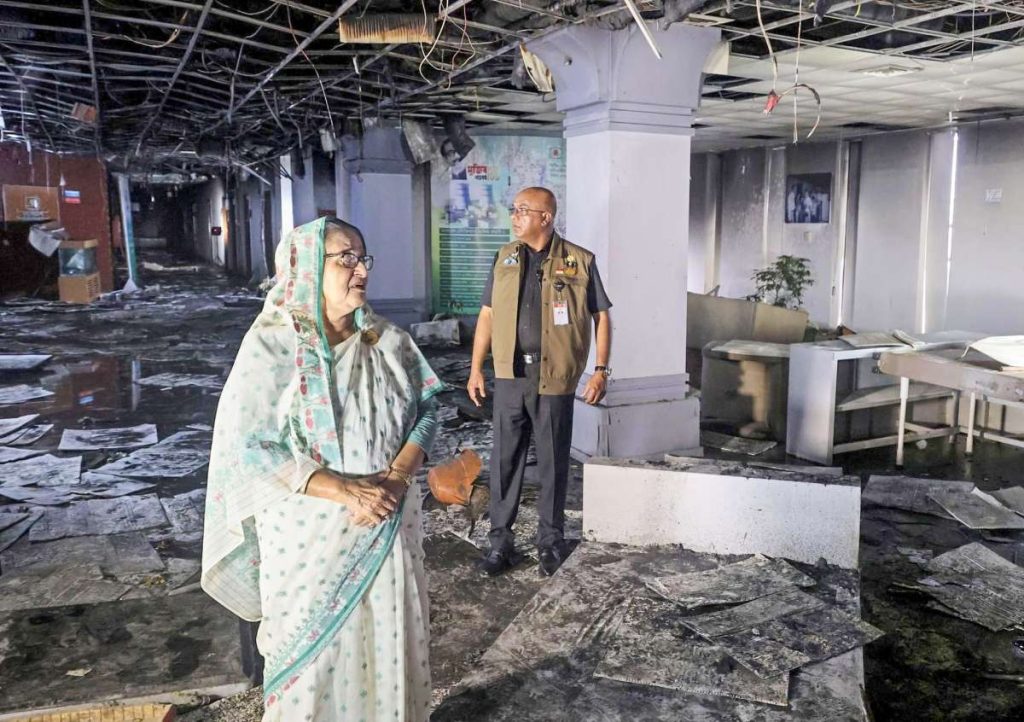
She blamed the opposition, the BNP collaborating JeI, in infiltrating the legitimate protests carried out by the students to unleash widespread violence and destruction. She wondered why the students, despite the government repeatedly stating in support of their demands of reforms in the quota system, failed to stop their agitation. She underlined that students refused to end their agitation even after the Supreme Court drastically reduced the quota to just 7%.
In an interview with Al-Jazeera Bangladesh’s minister of state for information and broadcasting Mohammad Arafat had said, “We are not referring to the students [as] terrorists and anarchists. It is the third party, those who intruded into this movement and started doing all this,” Arafat claimed. “Some people [were] trying to add fuel to the fire, [were] trying to create a situation where they can take advantage… and topple the government.”
The Awami League published an article on its official website claiming the same. The article, “Quota Movement: the Blueprint for regime change in Bangladesh,” lists the major incidents during the violence showing the pattern claiming it proves the intention of the rioters to bring regime change in the country.
Stronger Possibility of a US led Regime Change:
Several international diplomats, including the US State Department spokesperson, were speaking on the events of the previous weeks without trying to verify the facts, revealing their dislike towards the government in Bangladesh.
For some time now, the administration of U.S. President Joe Biden had been targeting Bangladesh as the focal point of its democracy promotion efforts by dangling the threat of visa sanctions against officials who undermine free elections while staying silent on the undeclared martial law situation in Pakistan, where mass arrests, disappearances and torture have become political weapons?
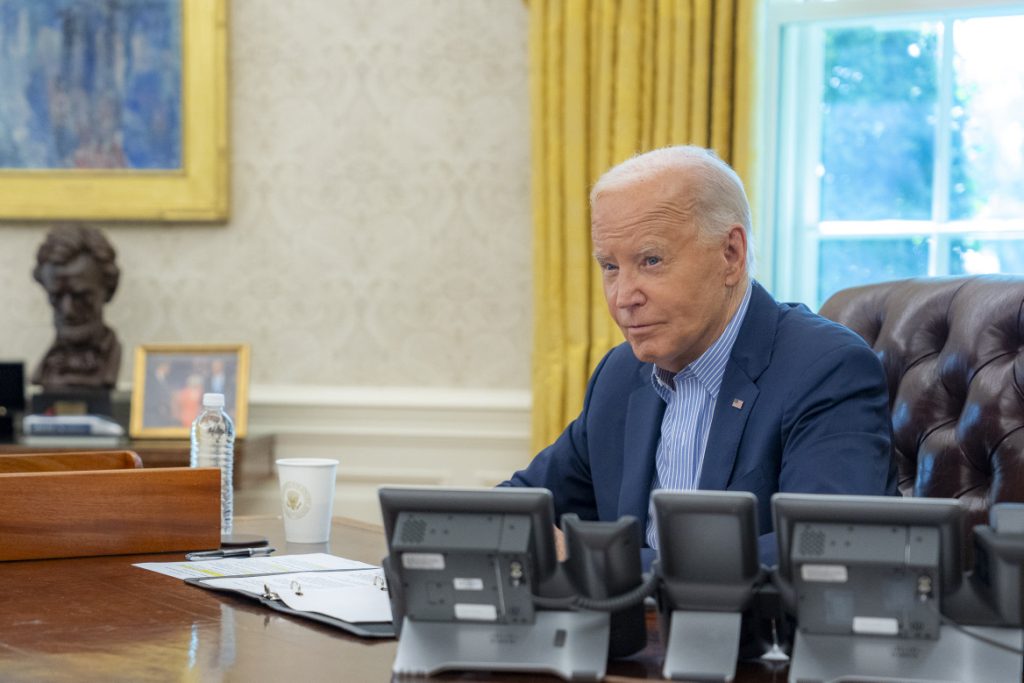
While continuing to reward Pakistan by prioritising short-term geopolitical considerations, the Biden administration has been criticising democratic backsliding in Bangladesh. In 2021, it designated Bangladesh’s elite Rapid Action Battalion and six of its current and former leaders as complicit in, or engaged in, serious human rights abuses in relation to the country’s war on drugs, effectively freezing all their assets in the U.S.
In December 2023, Peter Haas, the U.S. ambassador to Bangladesh, insolently demanded that the authorities investigate a deadly clash between police and members of the BNP. Blinken told Bangladesh Foreign Minister Abdul Momen of his “concerns about violence against, and intimidation of, the media and civil society,” according to a State Department statement.
In a professed aim of free and fair elections in Bangladesh, US Secretary of State Antony Blinken threatened to withhold visas from individuals “responsible for, or complicit in, undermining the democratic election process”, clearly aimed at members of Hasina’s government.
In April 2024 Hasina, contended that the U.S. is pursuing a strategy of regime change in her country. “They are trying to eliminate democracy and introduce a government that will not have a democratic existence,” she told parliament, “It will be an undemocratic action.”
Then in May 2024 Sheikh Hasina again talked of a ‘foreign conspiracy’ to topple her government, months before she was forced to quit. “If I allowed a certain country to build an airbase in Bangladesh, then I’d have no problem getting re-elected…The offer came from a White Man”, said Hasina. In this edition of the editor’s table, we explore whether a ‘western plot’ was in place to ensure Sheikh Hasina’s ouster from Bangladesh.
Indeed despite mounting evidence that the quota movement was in fact a conspiracy and that the violence was deliberately being instigated by the Jamaat, ICS and BNP cadres, Western international agencies chose to target the Awami League government.
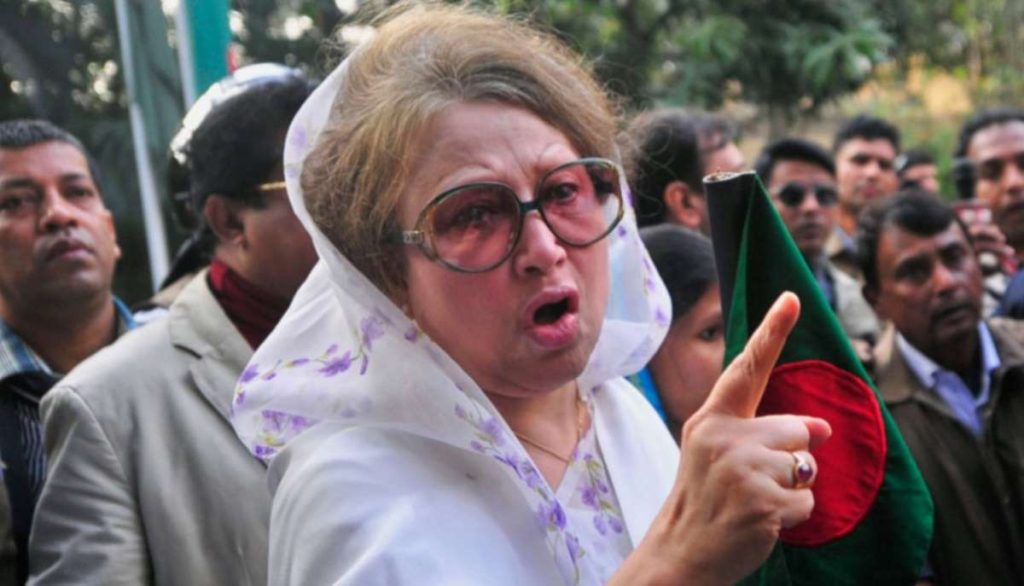
Several international organisations issued condemnations of violence against the protesters, with some even calling indirectly for regime change and sanctions against Bangladesh’s security forces, and accusing the Hasina government of indulging in systematic violations of human rights and autocratic practices, without trying to verify the facts, revealing their dislike towards the government in Bangladesh.
“Now is the time for influential governments to press Sheikh Hasina to stop her forces from brutalising students and other protesters,” said Meenakshi Ganguly, deputy Asia director of HRW. Ganguly also called for sanctions against Bangladesh security forces.
A group of UN experts issued a statement, demanding an independent probe into accusations of violence. They alleged that the Bangladesh government has no credibility in such matters, and cannot be trusted. “We are deeply concerned by reports of targeted attacks, threats, intimidation, and retaliation by the authorities and Government-aligned groups against protest leaders, political activists, human rights defenders and journalists,” the statement read.
Volker Turk, UN Human Rights chief, too asked for an independent investigation into the alleged human rights violations during the state’s crackdown on the protesters. “We understand that many people were subjected to violent attacks by groups reportedly affiliated with the Government, and no effort was made to protect them,”
It may be recalled that the West has not been sparing in its constant criticism of the Hasina government over human rights issues. The US and several other countries had questioned the legitimacy of the last elections in January, in which Hasina’s Awami League was reelected for a fourth consecutive term.
In April 2024, at a briefing titled “Indo-Pacific Strategy (IPS) and its implications for Bangladesh” Maxwell Martin, Indo-Pacific Strategy Officer at the US embassy in Dhaka revealed that as part of its Indo-Pacific strategy, the United States wants to see Bangladesh Armed Forces become a “net security provider in the region.” When asked about India playing a leadership role in the region in the implementation of IPS, Martin emphasised that the US looks at its relations with Bangladesh “on a bilateral basis”, “We don’t look at our relations through the lens of another country. This is something we hear in Bangladesh – that the US sees Bangladesh through the lens of India. I don’t think that’s true.”
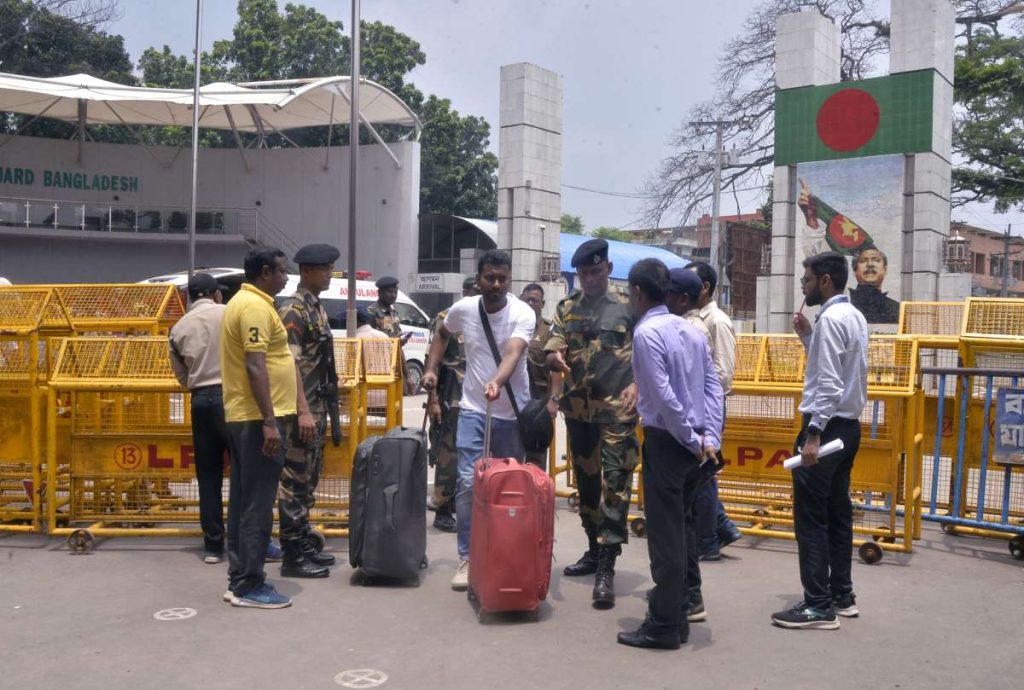
Martin said the US wanted to help the armed forces achieve its Forces Goal 2030, ensure the country’s security, respond to manmade and natural disasters and engage more in UN peacekeeping missions. Martin said the recent emphasis on labour rights in Bangladesh, and the earlier emphasis on free and fair national elections, were part of the Indo-Pacific Strategy. “You’ve seen us be a bit more open and vocal. We are also ramping up our engagement with Bangladesh on multiple fronts – economic, political and security,” he said.
ALSO READ: Bangladesh Chaos: Pak-Backed Jamaat-e-Islami Student Wing Pulls the Strings



